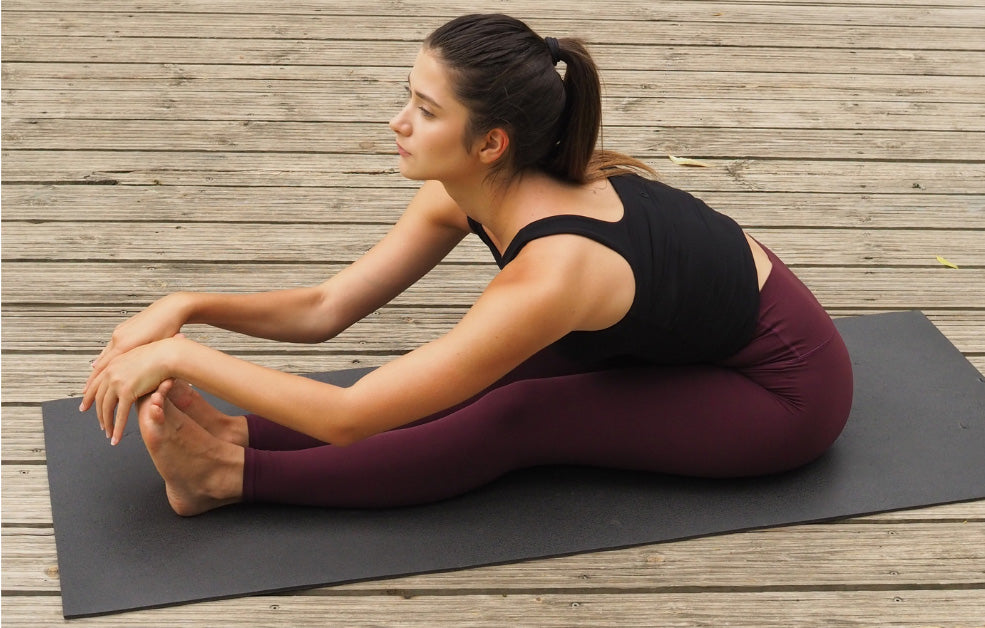
How To Organize A Yoga Retreat - A Simple Guide
Lisa Kauff, founder of Monkey Yoga - Hosting Yoga Retreats and Events, teaching Yoga in-person and online, introduces a simple guide on how to organize your own yoga retreat as a yoga teacher. Lisa has been offering yoga events and retreats for years in Germany and supports you with insights from her own experiences on how to plan a yoga retreat for your yoga students.
7 Steps to a perfect yoga retreat
Running a yoga retreat can be deeply rewarding in many ways. However, planning and organizing a yoga retreat can be very overwhelming and stressful - as you don’t just have to plan your yoga classes but also find and book a location, organize the agenda, market and sell the retreat and manage everything around it. Therefore Lisa introduces you to her 7 steps to a perfect yoga retreat, a simple guide. Following the guide will make the experience less exhausting for you...
1 - Identify the market, your customers and their needs
Most important for your successful retreat is to already have some yoga students which would follow you along for a retreat. Before you start planning your yoga retreat, you should figure out what your yoga students need and want. Therefore, it is helpful to conduct a small “market research” of your students’ requirements. That means: Ask questions! Talk to your yoga students or conduct a small questionnaire on Instagram about what your followers would like to experience and where they would like to go.
Next, I recommend finding out what other yoga teachers have to offer. You can do research by looking at some retreat locations or other yoga teachers, who have been organizing retreats for a while already. You can also participate in a yoga retreat yourself and make notes of your experience, what you liked and what you would rather improve.
Step 1 is mostly about getting an overall picture of the market and customers, it doesn't have to go very deep. Always remember that you create the yoga retreat experience for others. Therefore you need to consider their needs to make your retreat a success.
2 - Set your goals and intentions
After you have found out what your customers / yoga students want, it helps to sit down and find your vision. Set your goals and intentions. What would you like to achieve with the yoga retreat? What will be your main focus? It is important to figure out what your vision is and that you stay true to yourself because it doesn't help to organize a retreat that the market wants but doesn't match your beliefs and intentions.
If your main goal is to achieve financial success with the retreat, then it would make sense to organize a big retreat with lots of attendees. Other than that, the option of organizing a yoga retreat for a niche theme or for just a small group of people is a more fulfilling variant. Most of the time attendees feel better about a small group because they can concentrate on themselves better and feel more special and appreciated.
Set your goals and intentions of the retreat. What would you like to accomplish with this yoga getaway? Figure out what kind of retreat matches you and maybe also the usual yoga style you teach.
There is different possible categories of retreats:
● Yoga for health & fitness
● Relaxation and meditation
● Ayurveda
● Nature and hiking
● Self discovery
Find your vision and your intentions and choose a main theme. With this theme you can find the perfect location, organize your classes and plan additional activities.
 📷 Lisa Kauff
📷 Lisa Kauff
3 - Find the perfect retreat location
One of the most crucial things to decide on for a yoga retreat is the location. Lots of attendees are searching and deciding for retreats based on the location / hotel.
In this crucial step, you have to consider the duration of the overall stay and travel towards the retreat location.
Most essential when choosing a retreat location is the space of the yoga room. Is it big enough? How many yoga mats will have space? But you also have to question how many people the hotel has to accommodate. What additional things does the hotel have to offer? For example for a wellness and relaxation retreat you might need a pool and wellness area.
Also the price of accommodation is an important factor. If your customers are not able to pay much, it would make sense to prefer youth hostels or low budget hotels over 5* Spa hotels.
It is very helpful if you visit the hotel before organizing your retreat to find out about the atmosphere and the friendliness of the hotel team. This way you get the whole experience and can ask your questions. You have to have a good feeling while staying there and the location has to give you a positive vibe. Also you can take some real pictures for your marketing.
Outdoor spots for yoga classes are amazing, such as platforms at the beach or in the mountains. However, there should always be an alternative room for bad weather conditions. Just imagine 4 rainy days and no option for yoga classes in a dry and warm environment…. 📷 Lisa Kauff / Parallel Dream
📷 Lisa Kauff / Parallel Dream
If you do not know where to start looking for the right location, you can check out some retreat locations of other yoga teachers in your city or region.
Ideas for locations:
● Hotels with focus on seminars
● Spa Hotels
● Fincas / rental homes
● Youth hostels
● Yoga hotels (if you are lucky)
4 - Plan your retreat classes and activities
Now you have to go back to step two in which you decided on your vision for the retreat and also made a plan of what kind of retreat it should be.
The style of yoga sessions that you will teach during the retreat depends on the retreat goals but also on the yoga style you are able to teach. It is also recommended to have a variety of styles of yoga classes. For example, you can start the day with a more powerful session but end the day always with a more calm session.
When you decide for example on a yoga & wellness retreat, it is important to give the attendees also the time to experience the wellness offer in the hotel. If you, on the other hand, planned a yoga and hiking retreat, it is crucial to plan enough time for the hike, also considering breaks in between.
Just always remember to not overbook and overplan the agenda. The attendees also seek for time for themselves and time to let the yoga experience settle down. It is vacation time for them, so no program that is stressful and always on edge.

5 - Calculate the yoga retreat costs
In this step, it helps if you already found out what your customers are willing to pay for a yoga retreat. So now it is time to crunch the numbers and calculate the fixed costs for the retreat like hotel, yoga classes, food and how much you want to earn for yourself. Consider also any additional costs, such as marketing costs, your own travel expenses, class supplies and lost income from the classes you will miss at home.
A lot of hotels require a deposit for the retreat, so you have to consider those costs at your own risk. Therefore it is better to not give the short-term cancellation option. It is helpful if you recommend the attendees a travel cancellation insurance. This way you don’t have to take the entire risk.
6 - Sell and market your retreat
An essential part of creating a successful yoga retreat is to sell and market it. The right marketing to make people book the retreat is crucial. Depending on the attendees you want to attract you choose the marketing strategy. Younger audiences will for example respond better to social media. But more traditional media like newsletters and flyers can also work. Essential to your marketing activities is definitely a SEO-optimized, informative and attractive landing page with many pictures of the location and some of yourself. Make the promotion more authentic and personal. Share your vision of the retreat and why this yoga retreat experience is different from others and what it brings to the participants.
The most powerful marketing tool is definitely “word of mouth”. So don’t be afraid to ask your community or yoga students to spread the word and tell more about their experiences with you or past yoga retreats and events.
7 - Last things to do and to think of
The last step is about thinking of everything else. It is important to stay organized and stay up-to-date with registrations and payment statutes. It is helpful to plan everything for quite some time before the yoga retreat will be held. This way it is less stressful shortly before the retreat.It helps to see yourself as a host of the retreat. Kind of the same like hosting guests at your home. You have to make your guests feel welcome and special. This makes them enjoy the retreat better and get the full experience.
Heartfelt things like writing the participants little notes and a bag of small presents in their rooms make the difference. Those details with love and appreciation will make the experience more memorable.
I wish you a heartfelt, beautiful and successful retreat!
Yours, Lisa from Monkey Yoga

Learn more about Lisa:
Website: www.monkeyyoga.de
Instagram: @monkey.yoga.lisa



